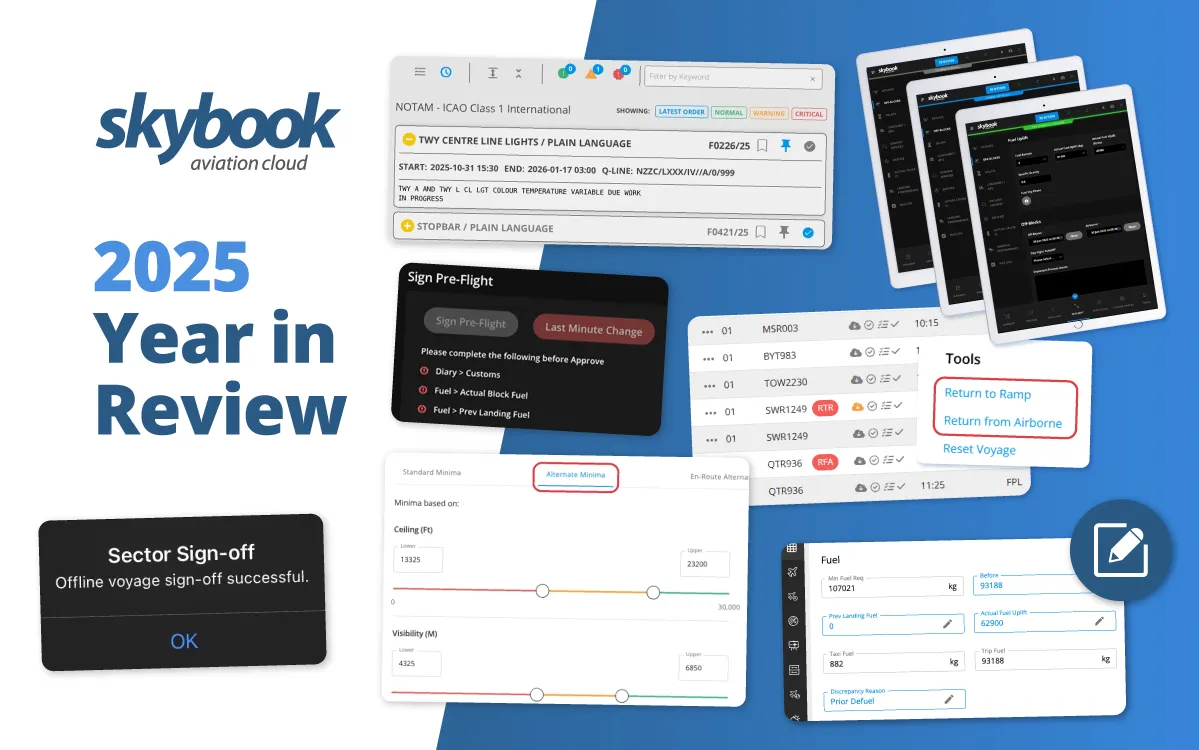
skybook 2025 Year in Review
In this article you can see some of the types of aviation weather briefing charts that skybook generates as standard for airlines.
When a briefing pack is automatically created and sent to the electronic flight bag (EFB) these are full of detailed route and weather charts for the flight crew to review during their pre-flight responsibilities.
Our turbulence charts are viewable at multiple flight levels for an improved awareness of potential light, moderate, severe or extreme turbulence.
These charts also include AI-based contrail information using Google’s predictive data, allowing flight crew to see where persistent contrails are likely to form, helping pilots to avoid flying through contrail heavy routes and reduce their contribution in creating contrails.
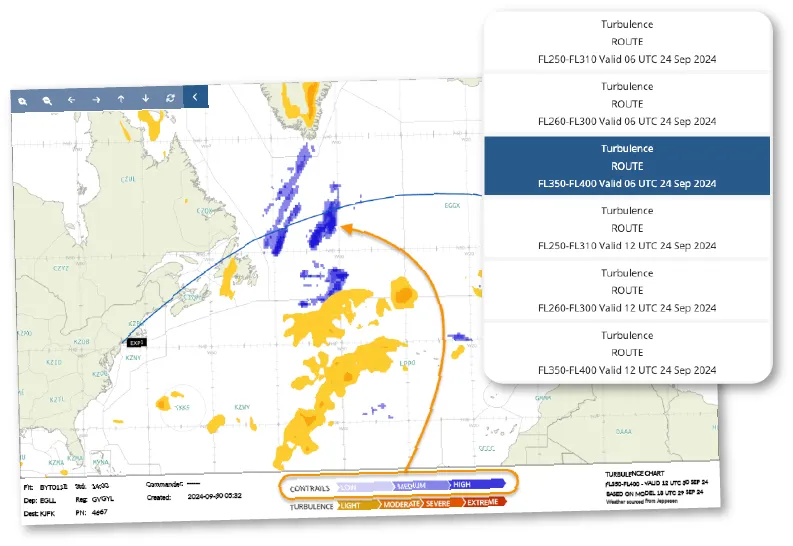
The predictive contrails extend to vertical profile charts, highlighting when a route passes over, under, or through areas of significant contrail activity, enabling pilots to adjust and avoid contrail-heavy paths.
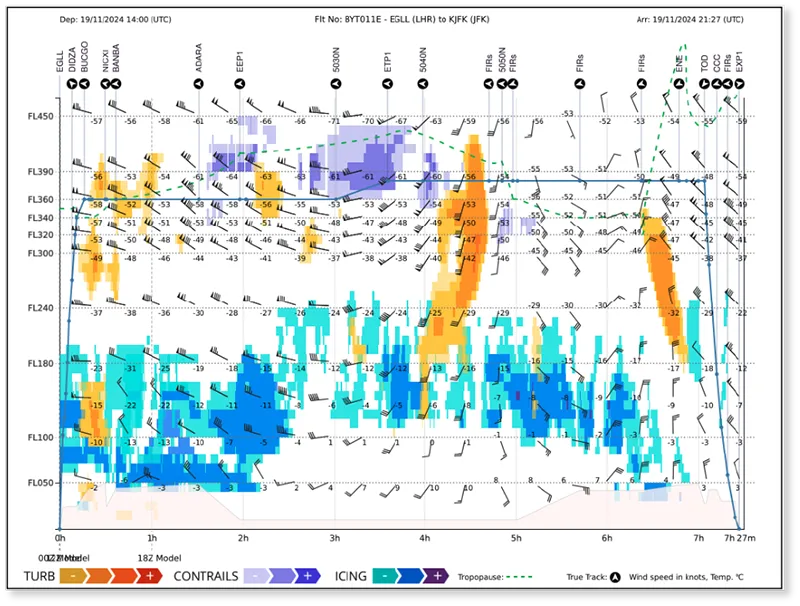
Our Significant weather charts indicate weather activity in increments of thousands of feet. For example, FL100 – FL450 shows weather for flight level 10,000 – 45,000 feet.
The SIGWX charts also feature range rings that show distances from a specific airport or a navigational waypoint.
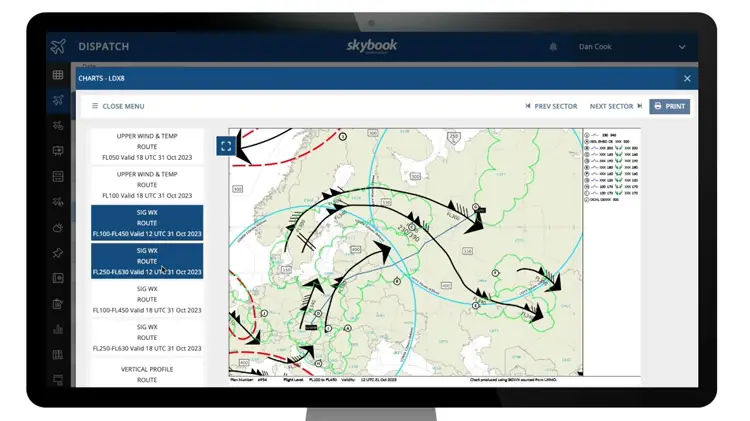
SIGMETs or Significant Meteorological Information provide crucial information regarding weather that could affect the safety and efficiency of flight operations. These conditions include severe turbulence, icing, volcanic ash clouds, thunderstorms, and other significant weather events.
In skybook our SIGMET charts are colour coded based on the type of SIGMET and labelled numerically based on its proximity to the route.
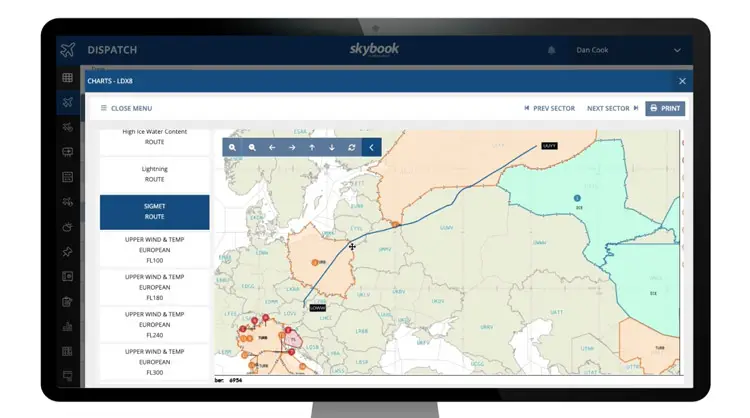
These aviation briefing charts provide information about wind speed, direction, and temperature at different flight levels above the surface. This includes wind barb symbols to indicate both wind speed and direction; and also the temperature at specific altitudes.
Upper wind is valuable to understand the movement of air masses, the jet stream, and the potential for turbulence at various flight levels. Whilst upper temperature is essential to understand atmospheric instability, the formation of weather systems, and the development of things like thunderstorms or temperature inversions.
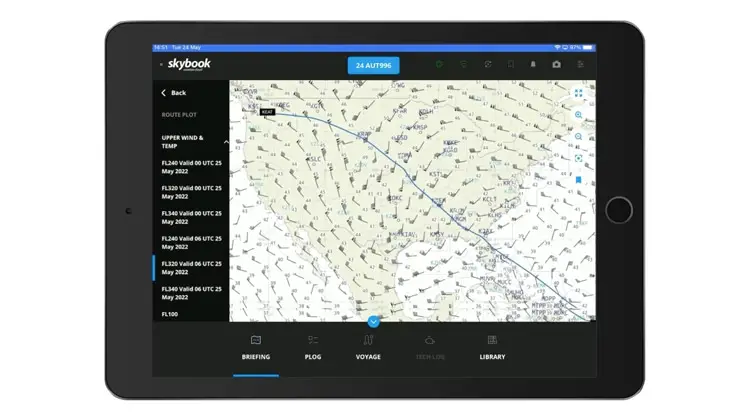
skybooks popular vertical profile charts feature a whole host of data. Such as turbulence, icing and contrail data which is colour-coded with a key at the bottom of the chart indicating the level of severity. Wind and temperature data can also be displayed over a set number of points along the route.
Tropopause and magnetic and true bearing are also shown.
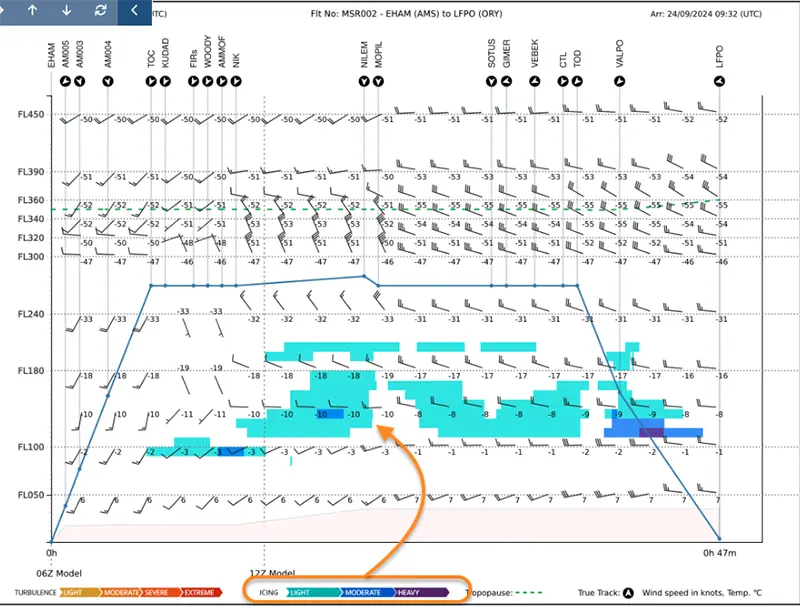
The skybook surface analysis chart provides a snapshot of things like high and low-pressure, the locations of weather fronts, and the general wind patterns, with pressure figures showing in millibars.
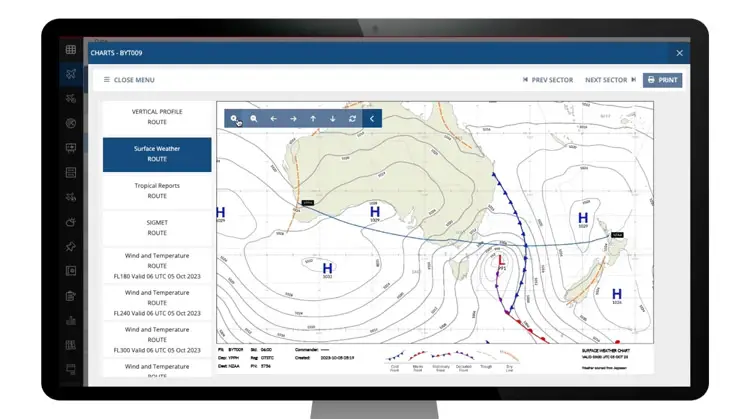
These charts show hurricane information following the predicted direction of travel, including the storm name, direction and speed, and a time and date stamp.
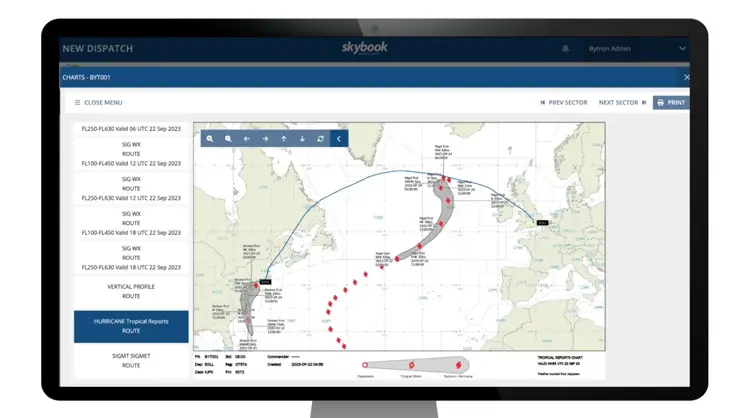
High ice water content relates to atmospheric conditions where there are high concentrations of ice crystals in temperatures below -20C. Over time ice crystals can aggregate and reduce the internal temperature of the engine, potentially leading to various engine malfunctions.
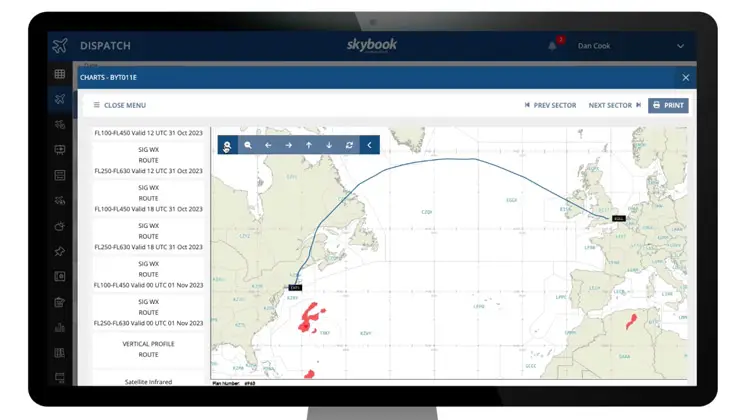
Infrared satellite charts show clouds in both day & night, helping to determine the cloud tops altitude and if they are likely to exceed the operating ceiling.
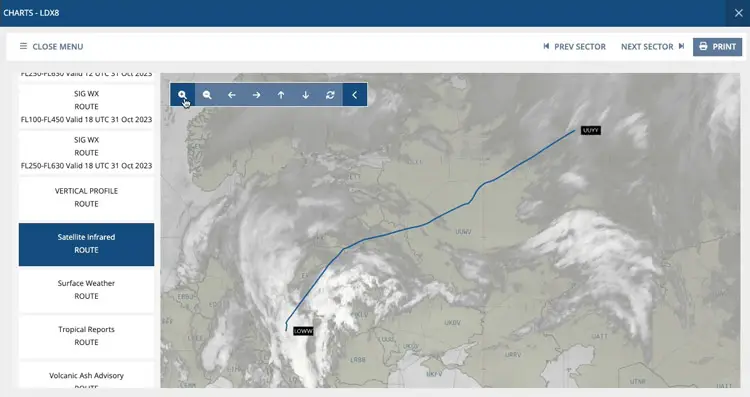
Other aviation weather briefing charts included are our route plot chart which shows the flight waypoints and range rings. Our volcanic ash chart and Lightning chart.
Where relevant our pilot briefing charts display a key of information in the bottom right corner for quick reference.
Restricted areas and no fly zones are displayed on the briefing charts, with colour coding associated with red for no flyzones and amber for restricted areas.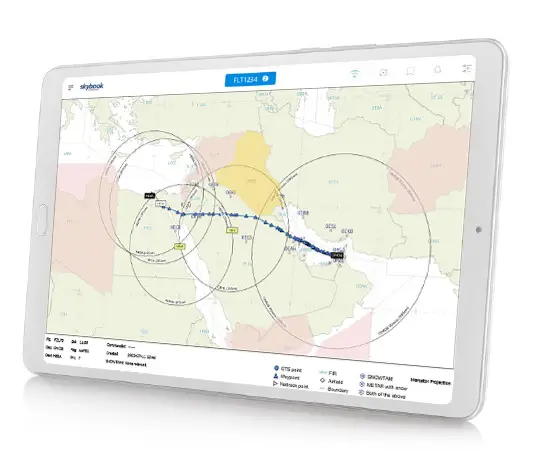
Flight crew and operations use skybook aviation briefing charts to make informed decisions about flight routes (such as ETOPS), altitudes, and strategies for avoiding adverse weather conditions. By analyzing specific charts, aviation professionals can enhance safety and efficiency during flights.
For more information be sure to get in touch or learn more about skybook aviation cloud.
You might also find this article useful:
Is your flight brief automated?